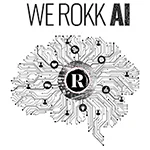 Until recently, I’ve seen an industry tempered with a herd mentality. Tech companies have done a brilliant job promoting the idea that technology should be celebrated and applauded … agnostically. They operate under the guise of developing the next ease of access and leave it to the market to determine the morality of it all.
Until recently, I’ve seen an industry tempered with a herd mentality. Tech companies have done a brilliant job promoting the idea that technology should be celebrated and applauded … agnostically. They operate under the guise of developing the next ease of access and leave it to the market to determine the morality of it all.
In some ways it’s a good thing, but I challenge our tech innovators to be the first to practice real corporate social responsibility, not just for the sake of PR — but because starting a conversation about the negative implications and unintended consequences of all these shiny devices is the right thing to do. And it’s how a tech company in today’s digital age will instill trust and generate a legacy as one of the greats.
Healthcare innovations have evolved from pedometers and clunky heart rate monitors to more advanced fitness trackers and smart watches that measure body temperature, calorie consumption and physical exertion. The number of wearable-tech and smart-everything owners continues to skyrocket. A natural progression of technology, these devices allow consumers unprecedented ways to monitor and improve their health.
The benefits are exponential: medical emergencies can be detected in an instant and people are able to better regulate their own health. Banking, too, has never been easier or more convenient. Mobile payments are revolutionizing the way economies grow.
At the same time, by its very nature, technology has unleashed a behavior of shared information that makes us much less secure. We, as consumers, have chosen to give away liberties at the expense of innovation. Our once highly guarded health and financial information is now placed in easily accessible places.
In effect, our whole generation has lost its sense of security. We’ve given in to the reality that if someone wants to find out personal information such as a social security or credit card number badly enough, they will. It’s an inevitability.
|
|
Privacy has become an old-fashioned notion. The consequences of living so openly are brushed off in favor of modernity. But the troubling fact remains that nearly half of companies have suffered from at least one security incident in the past two years. Hacking has become an industry of its own.
Yes, technology companies live and die by their next product, but they also have massive potential for positive societal impact. How much of their time has been spent on the rising theft and criminal activity … or on the disruption of the monetary systems because people are better able to crack the code? What are the safeguards for this unbridled innovation?
In every era, there exists a phase for discovery and regulation. Take the auto industry as an example. With a product that posed safety concerns from the beginning, car manufacturers have continued to develop and revolutionize car safety and security systems — from the first head lamps to today’s pedestrian airbags.
Tech, however, is a sector that has yet to come out of the age of discovery. Innovation is continuously placed at the forefront. But the past also teaches us that it’s only a matter of time before the government steps in and enacts forced regulation. It’s already starting. California is one of the first states to address consumer privacy issues with regard to mobile health apps.
Another result is that these years of placing innovation first has made it difficult for companies to sustain a value proposition. Without a theme or narrative thread reflecting corporate identity to pull through in marketing and PR, it’s harder for consumers to latch on and create a lasting relationship with the brand.
But the tech company that strays from the herd first — and creates a dialogue around how to enjoy the positive things about technology, while educating people about protecting their personal information — will be the one that leads morally, ethically and in market share. It will generate a reservoir of goodwill with the public that can help provide insulation from criticism that every outward-facing, public corporation in America eventually encounters.
The most important element, however, is to do it for the right reasons. When you take on a public education campaign, you’re going to get the halo of doing it, but that shouldn’t be your intent.
By working with the government to enact change, the industry will have an opportunity to be more self-governing and harbor more control over the process. This exploration of corporate citizenship will organically spur the right policies that are pro-business and pro-consumer. This approach itself fosters positive public reception along with a natural behavioral change that comes with maturing attitudes.
That being said, there’s no need to waste efforts on my generation. It’s too late. Two generations from now — my grandchildren — are the ones to be saved by this. They can still be taught how to protect their identities and use the web without sacrificing privacy or their senses of self.
The notion of teaming up with a partner willing to make a real difference is thrilling. I hope one from the masses rises to meet this challenge. Because, as we all know, legacies aren’t built overnight — and in this digital age more than ever, great ones require a departure from the norm.
* * *
Peter Prodromou is President of Racepoint Global.



 Laura Anderson, who rose to VP/GM of global communications and events in a nearly 20 year stint at Intel, will take on the Americas technology chair at Burson following the completion of the BCW and H+K merger on July 1.
Laura Anderson, who rose to VP/GM of global communications and events in a nearly 20 year stint at Intel, will take on the Americas technology chair at Burson following the completion of the BCW and H+K merger on July 1. WE Communications has partnered with ROKK Solutions to form the WE ROKK AI service.
WE Communications has partnered with ROKK Solutions to form the WE ROKK AI service. In the dynamic world of modern business, effective communication is a pivotal tool for success across various industries. At Communications Strategy Group (CSG®), our expertise in embracing innovation in communication extends beyond traditional marketing strategies, paving the way for transformative industry-specific solutions.
In the dynamic world of modern business, effective communication is a pivotal tool for success across various industries. At Communications Strategy Group (CSG®), our expertise in embracing innovation in communication extends beyond traditional marketing strategies, paving the way for transformative industry-specific solutions. There are two types of tech PR professionals. Which one are you? And are C-suite executives making that decision for you?
There are two types of tech PR professionals. Which one are you? And are C-suite executives making that decision for you? While there’s an impulse to grab reporters’ attention with the newest industry-transforming tech product or service, a back-to-basics approach focused on telling the right stories to the right people is a far more successful way to ensure your technology campaign breaks through the clutter of today’s crowded tech landscape.
While there’s an impulse to grab reporters’ attention with the newest industry-transforming tech product or service, a back-to-basics approach focused on telling the right stories to the right people is a far more successful way to ensure your technology campaign breaks through the clutter of today’s crowded tech landscape.


 Have a comment? Send it to
Have a comment? Send it to 
No comments have been submitted for this story yet.